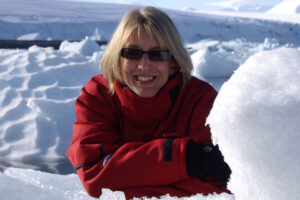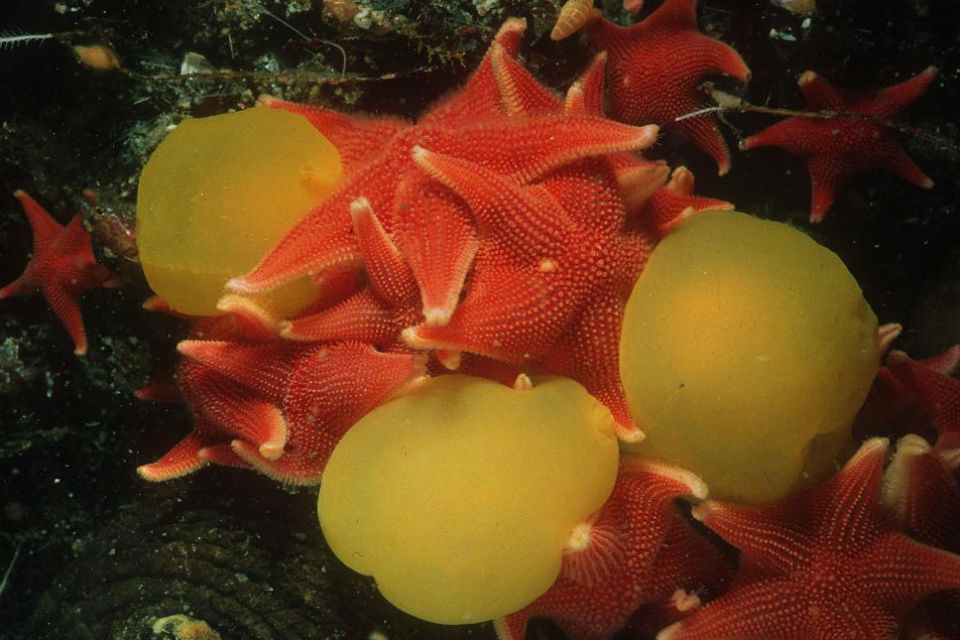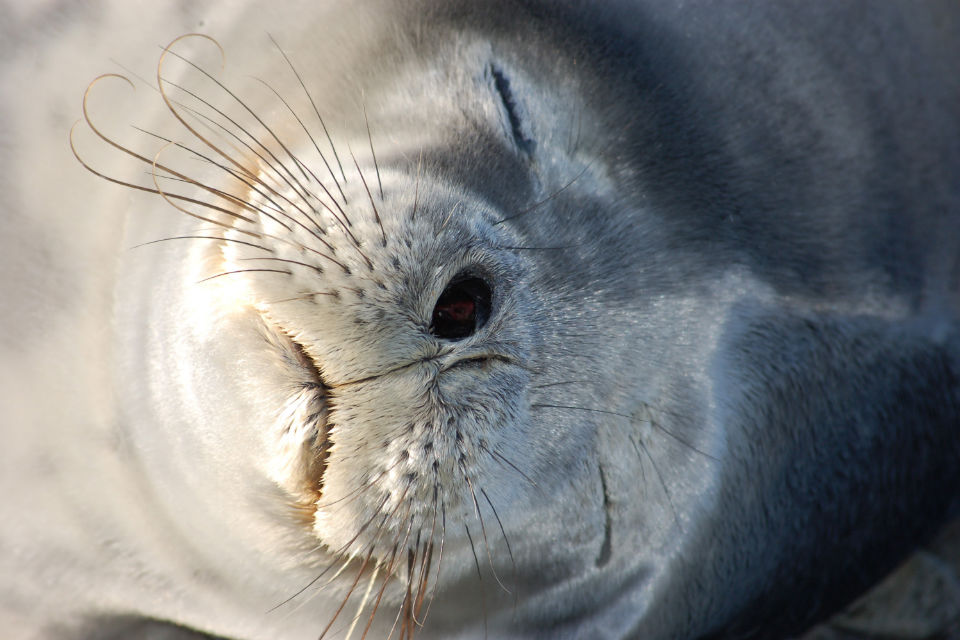
Hello - my name is Dr Melody Clark and I’m a public servant! Public servants don't just work in Whitehall, although sometimes it feels like it if you listen to the press. I work as far away from London as you can get.
I work for the British Antarctic Survey as a senior scientist and project leader. In fact, I didn’t even realise that I’d joined a public service until several months after I got the job. I just applied to work on what seemed to be a interesting science project in a great place. I guess that’s the beauty of government work, it’s so diverse.
What do I do
I lead a mixed team of scientists studying a range of subjects from ecology, marine biology and physiology through to how cells work. I’m a molecular biologist so I study the genes of the animals that live in the Antarctic, like sea stars and sea lemons. If it’s small and moves, I’ll sequence its DNA - they don't let me near the large, cute and cuddly stuff!

I’m interested in how these animals adapted to life in the extreme cold, but also how they will react and survive when things warm up under climate change.
I work at the Rothera Research Station on the Antarctic Peninsula, which is one of the fastest warming regions of the globe. It's important work because we can use what we know about how the biodiversity in this region is changing to predict how marine life will be affected in other oceans.
I don’t just work in the Antarctic. I also work all over Europe and much of our funding comes from national and international grants. For example, I currently lead an EU-funded Marie Curie training network called CACHE, investigating how commercial shellfish produce their shells. It's not only interesting and rewarding work, but I’m working on the tasty stuff for a change as I adore scallops!
My typical day
I love practical science but these days I spend most of my time managing projects. There's a lot of variety to my days rather than a 'typical' one, so I’ll tell you what happened today.
After my first obligatory coffee, a colleague from the Materials Science Department at Cambridge University popped by to pick up some Antarctic clam shells for analysis. We are working on a project looking at how skeletons in Antarctic animals differ to similar ones in the UK. We're trying identify new biomaterials for use in industrial processes that are robust at very cold temperatures.
I then spent some time discussing an up-coming field trip to the Scottish Association of Marine Sciences and worked on the final plan of the first CACHE annual meeting.
This first meeting won't just focus on work as we want students to appreciate the cultural impact of science. So we're planning an exciting mix of art and science. After 3 days of learning how to write scientific articles and talks on communication skills, we'll all get to try Gyotaku, the traditional art of Japanese fish printing. I wrote this bit into the project as I really wanted to try it, so at least one of us will enjoy this and depending on the results, you might see it in a future blog!
It all went downhill from there: I wrote a list of chemicals to take to the Antarctic on my next trip and read through parts of a grant application. I then reviewed articles for the Marine Genomics journal, as I’m on the editorial board. I also remembered to text “Good Luck” to one of my PhD students, who was on her way to her first year assessment.
I finished up having an exciting chat with a collaborator in Germany about some results of a secret project we are currently working on.

Of course all this changes when I’m in the Antarctic, which I am for 2 months every 2 to 3 years. When I'm there I try and avoid administration as much as possible and concentrate on practical work. I'll blog more about this when I'm next there.
Like most civil servants I'm proud to work in a challenging job that I love. I also get the added the bonus of room with a view of cute Weddell seals and icebergs for part of the year, rather than a car park in Cambridge.
Photo credits:
- Dr Melody Clark enjoying the Antarctic weather near Rothera research station on the Antarctic Peninsula. Credit: Lloyd Peck, British Antarctic Survey
- The common Antarctic sea star with sea lemons, Credit: Dave Bowden, British Antarctic Survey
- A Weddell seal. Credit: Melody Clark, British Antarctic Survey

3 comments
Comment by Tim Whitcombe posted on
Neil, I understand there is an Amundsen Avenue in Bradford. Hardly high profile I know.
Melody, thanks for this BAS update on your work. It reminds me that in a different life back in the 1980's I also worked for a few years at British Antarctic Survey as a Field Assistant. I did a season out of Rothera on Adelaide Island geology and spent some summers in Cambridge. Now I'm with National Minimum Wage team in Leeds. Quite a contrast. Best wishes, Tim.
Comment by Stillhere posted on
I'm sorry but I don't think Dr Clark can be a civil servant. I wouldn't normally make the point about this sort of article but here such a feature is made of it that I feel a correction is necessary. Dr Clark works for the BAS which is a part of the Natural Environment Research Council, a Non-Departmental Public Body (NDPB) sponsored by BIS. Staff of NDPBs are not civil servants unless they are employed by one of the very few Crown NDPBs of which the NERC is not one. She might also be a civil servant if she were on loan or secondment to the BAS from a government department but as the article implies she applied for the post directly then I don't think this can be the case. In short, the BAS is not part of the civil service and Dr Clark is not a civil servant. She can call herself a public servant if she wishes. You might think that all this is a bit arcane but the recent report from the Public Administration Select Committee, "Who's accountable? Relationships between Government and arm's-length bodies", pointed out what a mess all this is and the confusion is not helped by the publication of misleading articles such as this. I think the point ought to be corrected at the earliest opportunity.
Comment by Neil McCallum posted on
i've been fascinated by this continent since reading the book about the Scott & Amundsen expeditions.Linked to the tv series starring Martin Shaw. I still need to use the Ask Jeeves website to see if a street in the UK has been named in honour of Amundsen.
A man whom I regard as a hero & the superior scientist. I fear that the answer is no.
I shall dismount this hobby horse & wish you well in your research.